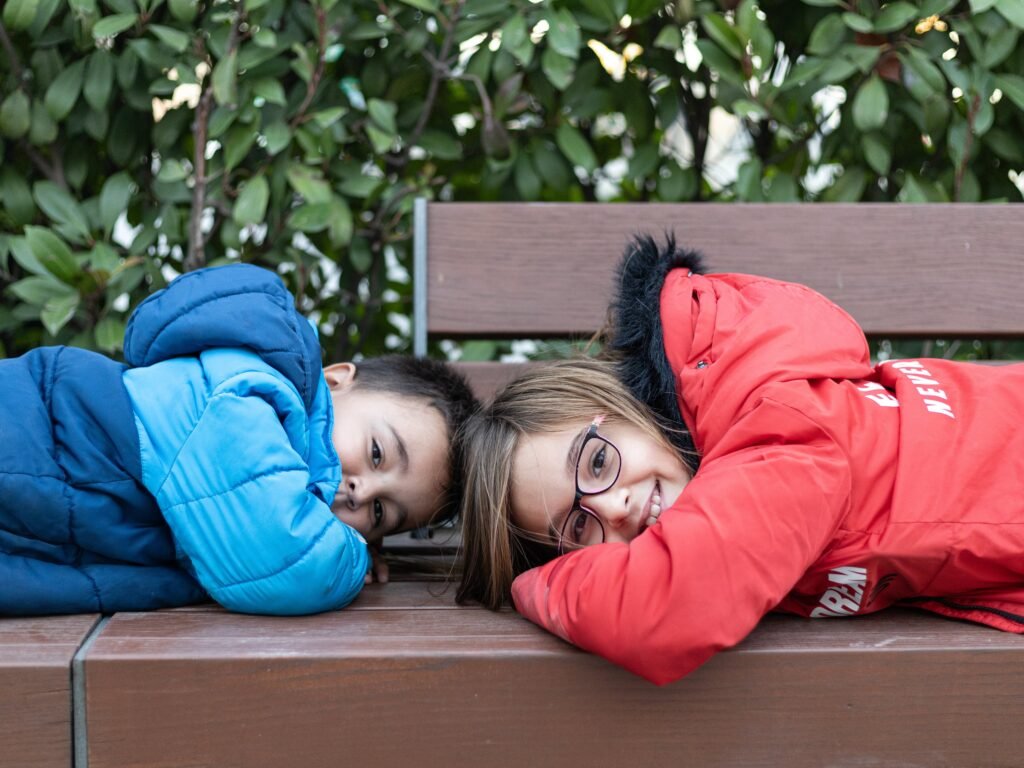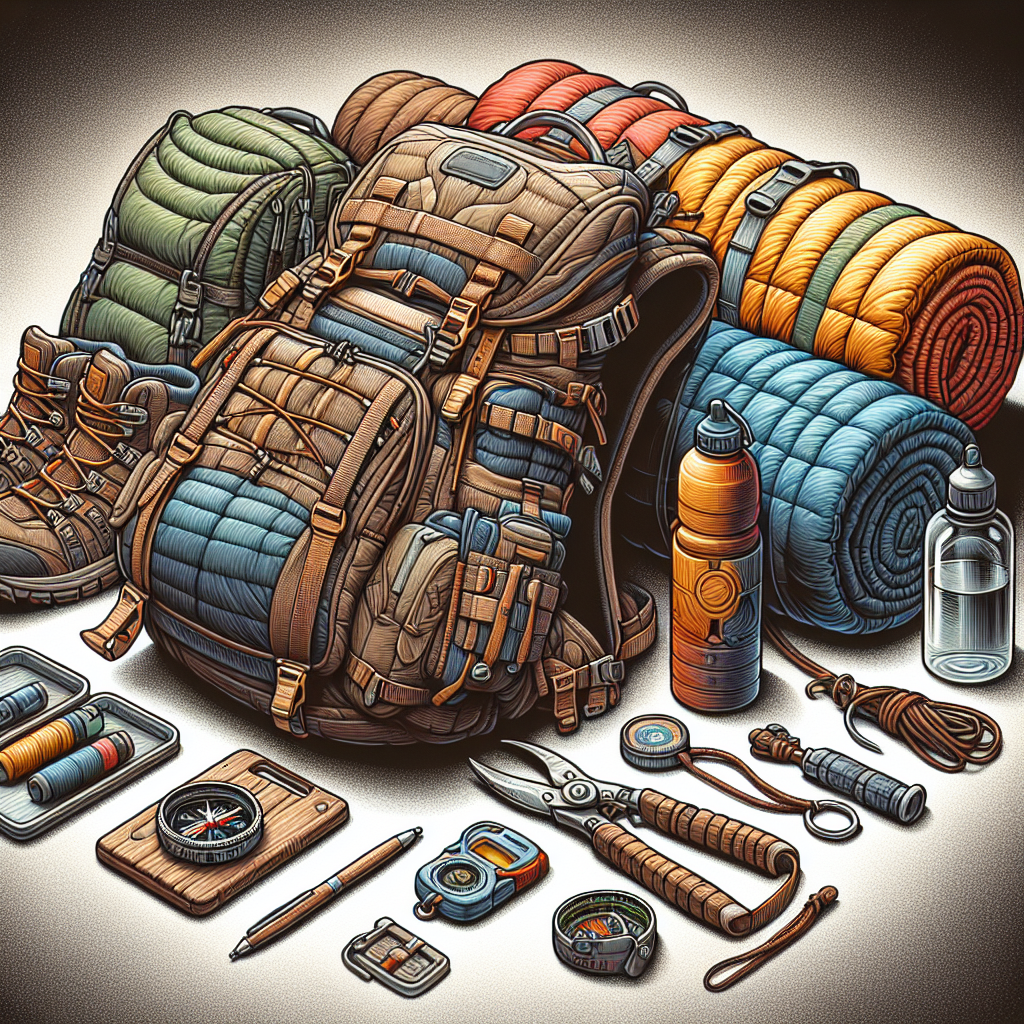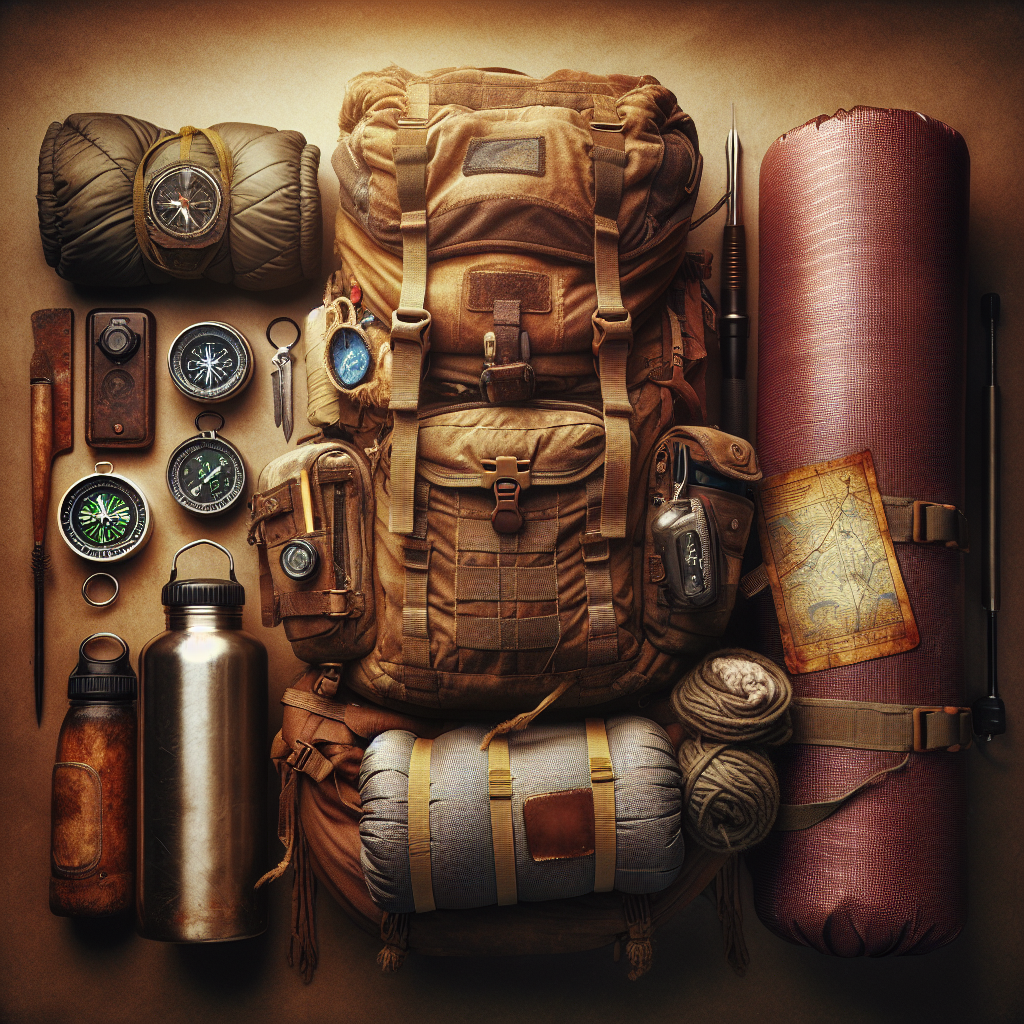Ready to head out into the great outdoors and enjoy a camping adventure? Before you embark on your journey, it’s important to make sure you have all the essential camping gear. From the right sleeping bag to a reliable cooking stove, having the necessary equipment can make or break your camping experience. In this article, we’ll guide you through the must-have items that will ensure you have a comfortable and enjoyable time in the wilderness. So, get ready, pack your bags, and let’s explore the essential camping gear you really need.
Shelter
Camping is all about getting out into nature and spending time in the great outdoors. To truly enjoy your camping experience, it’s important to make sure you have the right gear. One of the most essential things you’ll need is shelter. A good tent is a must-have for any camping trip. It provides protection from the elements and gives you a place to sleep and relax. When choosing a tent, consider the size, weight, and durability. Look for one that is spacious enough to comfortably fit you and your fellow campers, but also easy to set up and transport. A waterproof tent with strong poles will ensure that you stay dry and safe, even in the event of rain or strong winds.
Tent
A tent is your home away from home when you’re camping. It’s important to choose a tent that suits your needs and the number of people you’ll be camping with. Tents come in various sizes and designs, from small one-person tents to large family-sized tents. Consider the weather conditions of your camping destination and the season you’ll be camping in when choosing a tent. Look for a tent with good ventilation to prevent condensation inside, and make sure it is easy to set up and take down. Durability is also a crucial factor, as you want your tent to last for many camping trips to come.
Sleeping bag
A comfortable sleeping bag is essential for a good night’s sleep while camping. Sleeping bags come in different shapes, sizes, and temperature ratings. The temperature rating indicates the lowest temperature at which the bag will keep you warm. Choose a sleeping bag that suits the climate and season of your camping trip. If you’re camping in colder weather, opt for a sleeping bag with a lower temperature rating to ensure warmth and comfort. Look for a sleeping bag that is lightweight and easy to pack, so it doesn’t take up too much space in your backpack or car.
Sleeping pad
While a sleeping bag provides insulation from the cold ground, a sleeping pad adds an extra layer of comfort. Sleeping pads come in various forms, including inflatable air pads, self-inflating pads, and foam pads. They help to cushion your body and provide support while you sleep. Consider factors such as weight, thickness, and insulation when choosing a sleeping pad. A thicker pad provides more comfort, while insulation helps to keep you warm. Test out different options to find the sleeping pad that suits your preferences and sleeping style.
Campsite selection
Choosing the right campsite can greatly enhance your camping experience. Look for a site that offers a combination of convenience and natural beauty. Consider factors like proximity to water sources, hiking trails, and other recreational activities. Flat ground with enough space for your tent and other camping gear is also important. Look for a site with natural shade or consider bringing your own shade canopy. Be mindful of any potential hazards, such as fallen trees or rocky terrain. Finally, be respectful of the environment and follow any rules or regulations set by the campground or park.
Cooking Equipment
After a day of outdoor adventures, nothing beats a hot and delicious meal cooked at your campsite. Having the right cooking equipment will make your camping meals a breeze to prepare. Here are some essentials to consider:
Stove
A portable camping stove is a must-have for cooking your meals while camping. There are various types of camping stoves available, including propane, butane, and multi-fuel stoves. Consider factors such as size, weight, and fuel efficiency when choosing a stove. Opt for a lightweight stove that is easy to pack and transport, but also sturdy enough to withstand outdoor conditions. Look for a stove with adjustable flame control, as this will allow you to cook a wider variety of meals.
Cooking utensils
Having the right cooking utensils is essential for preparing meals at your campsite. Include basic utensils such as a spatula, tongs, a knife, and a can opener. Also, consider bringing a whisk, a ladle, and a grilling fork for more specialized cooking needs. Look for utensils that are durable and easy to clean. Consider packing lightweight and collapsible options to save space in your camping gear.
Pots and pans
Having a set of pots and pans will allow you to cook a wide variety of meals while camping. Choose pots and pans that are lightweight and have a non-stick coating for easy cooking and cleaning. Consider the size and depth of the pots and pans, ensuring they are suitable for the meals you plan to prepare. Look for sets that come with lids to help with heat retention and efficient cooking.
Plates and bowls
Eating outdoors doesn’t mean sacrificing on eating utensils. Pack durable plates and bowls that are lightweight and designed for camping. Look for plates and bowls made of materials such as enamel, stainless steel, or lightweight plastic. Consider plates with dividers to keep different food items separate. Opt for stackable designs for easy packing and transportation.
Cutlery
Don’t forget to pack essential cutlery for your camping meals. Include forks, knives, spoons, and a set of steak knives if needed. Look for stainless steel or durable plastic cutlery that is easy to clean and won’t easily break or bend. Consider packing a set of reusable, packable cutlery to minimize waste and reduce your environmental impact.
Cooler or ice chest
If you plan on bringing perishable food or beverages, a cooler or ice chest is essential to keep them fresh and cold. Look for a cooler with good insulation and a tight seal to prevent leakage and maintain temperature. Consider the size of the cooler based on the duration of your camping trip and the amount of food and drinks you’ll be bringing. Pre-cooling the cooler by adding ice or ice packs before loading it with your perishables will help maintain a cold temperature for longer.

Fire Starting Tools
Building a campfire is a quintessential part of the camping experience. To get your fire started safely and efficiently, make sure you have the right tools.
Lighter or matches
A reliable lighter or a waterproof box of matches is essential for starting your campfire. Look for a lighter with a windproof flame and long-lasting fuel. Waterproof matches are a great alternative, especially if you expect wet conditions. Remember to pack them in a waterproof container to keep them dry and ready for use.
Firewood
While some campsites provide firewood, it’s always a good idea to bring your own supply. Look for seasoned firewood that is dry and free of moisture, as it will burn more easily and produce less smoke. Avoid bringing firewood from outside the camping area to prevent the introduction of invasive species. Gather firewood responsibly by using fallen branches or purchasing firewood locally to support the local economy and reduce the spread of pests and diseases.
Fire starter
To help get your fire going, consider packing some fire starters. These can be in the form of waterproof fire starter sticks, fire starter cubes, or even dryer lint soaked in wax. Fire starters are especially useful when trying to start a fire in damp or windy conditions. They provide a quick and reliable ignition source to help get your campfire roaring.
Clothing and Footwear
Proper clothing and footwear are crucial for staying comfortable and protected while camping. Consider these essentials:
Layered clothing
Layering your clothing is the key to regulating your body temperature in fluctuating weather conditions. Start with a moisture-wicking base layer to keep you dry and comfortable. Add insulating layers, such as fleece or down jackets, for warmth. Finally, top it off with a waterproof and breathable outer layer to protect you from rain and wind. By layering, you can easily adjust your clothing to adapt to changing weather throughout the day.
Rain gear
Even if the weather forecast is clear, it’s always a good idea to pack rain gear. A lightweight waterproof jacket and pants will keep you dry if rain showers unexpectedly occur. Look for rain gear that is breathable to prevent excessive sweating and discomfort. Pack a rain cover for your backpack as well to protect your gear from moisture.
Hiking boots or sturdy shoes
Having appropriate footwear is essential for navigating different terrains and ensuring foot comfort and support. Invest in a pair of hiking boots or sturdy shoes that provide ankle support and good traction. Look for waterproof options if you expect wet conditions. Before your camping trip, make sure to break in your footwear to avoid blisters and discomfort on the trails.
Socks
Having the right socks can make a world of difference in keeping your feet comfortable and blister-free. Opt for moisture-wicking socks made of materials such as merino wool or synthetic blends. Avoid cotton socks, as they tend to retain moisture and can lead to friction and blisters. Consider bringing multiple pairs of socks to keep your feet dry and fresh throughout your camping trip.
Hat
Protecting your head from the sun’s rays is important while spending time outdoors. Pack a wide-brimmed hat, a baseball cap, or a beanie depending on the weather and your personal preference. A hat will not only provide shade and protect your face and neck from the sun, but it can also help retain warmth on cooler nights.
Swimwear
If your camping trip includes swimming opportunities, don’t forget to pack your swimwear. Whether you plan on taking a dip in a natural lake or enjoying a swim at the campground’s pool, having swimwear allows you to fully enjoy the water activities. Additionally, a pair of water shoes can provide traction and protect your feet when walking on rocky or slippery surfaces.

Navigation Tools
When exploring the wilderness, it’s important to have the right tools to navigate and stay on track. Consider these essentials:
Compass
A compass is an invaluable tool for orienting yourself and determining direction in unfamiliar terrain. Learn how to read a compass and practice using it before your camping trip. An accurate and reliable compass will help you navigate trails, locate points of interest, and ensure you don’t get lost.
Map
A detailed topographic map of your camping area is essential for planning your routes and understanding the landscape. Look for maps specifically designed for outdoor activities like hiking or camping. Familiarize yourself with the map and the key features of the area before setting out on your adventure. Consider using a map case or a waterproof cover to protect it from the elements while on the trail.
Lighting
Having proper lighting is essential for navigating your campsite at night and creating a cozy atmosphere. Consider these lighting options:
Flashlights
A reliable flashlight is a camping essential. Look for flashlights with long battery life and multiple brightness settings. Consider packing a headlamp as well, as it allows you to have hands-free lighting while cooking, hiking, or setting up your tent. Don’t forget to pack extra batteries to ensure you won’t be left in the dark.
Lantern
A lantern provides ambient light and is great for illuminating a larger area, such as your campsite or the interior of your tent. Look for lanterns that are lightweight, durable, and have adjustable brightness settings. Consider lanterns with rechargeable batteries or solar-powered options to minimize waste and reduce reliance on disposable batteries.
Headlamps
As mentioned earlier, a headlamp is a versatile lighting option that allows you to have both hands free while still providing illumination. It’s particularly useful when cooking, reading, or going on nighttime excursions. Look for headlamps with adjustable brightness and beam distance settings to suit your needs.

First Aid Kit
Safety is paramount when camping, and having a well-stocked first aid kit can be a lifesaver in emergency situations. Here are some essential items to include:
Band-aids
Pack a variety of band-aids in different shapes and sizes to cover and protect minor cuts, blisters, or abrasions. Choose breathable and waterproof band-aids for added protection in wet conditions.
Gauze pads
Gauze pads are useful for dressing larger wounds and controlling bleeding. Pack sterile gauze pads in different sizes to accommodate different wound sizes. Consider including adhesive tape or self-adherent wrap to secure the gauze in place.
Antiseptic wipes
Antiseptic wipes or alcohol swabs are crucial for cleaning wounds and preventing infection. Use them to clean the area around the wound before applying dressing or bandages.
Pain relievers
Pack over-the-counter pain relievers such as acetaminophen or ibuprofen to alleviate minor aches, pains, or headaches. Check with your healthcare provider for any specific recommendations or restrictions.
Tweezers
Tweezers are handy for removing splinters, stingers, or other foreign objects from the skin. Look for tweezers with a fine, pointed tip for precise removal.
Cotton swabs
Cotton swabs are useful for applying ointments or creams, as well as for cleaning hard-to-reach areas. Pack a small container of cotton swabs for your first aid kit.
It’s important to periodically check and replenish your first aid kit before each camping trip. Consider adding any personal medications or other items specific to your needs or any medical conditions.
Personal Hygiene
Maintaining personal hygiene is still important while camping. Pack these essential items:
Toothbrush and toothpaste
Keeping your teeth clean and fresh is essential for overall oral health. Pack a travel-sized toothbrush and toothpaste in your personal hygiene kit. Consider packing a toothbrush cover or a small container to keep them clean and separate from the rest of your gear.
Soap
Choose a biodegradable soap that is safe for use in natural water sources to minimize environmental impact. A small bar of soap or a travel-sized liquid soap will be sufficient for your camping needs. Use it for hand-washing, body hygiene, and doing dishes if necessary.
Toilet paper
While some campsites have restroom facilities, it’s always a good idea to bring your own toilet paper. Pack it in a plastic bag or a waterproof container to keep it dry and easily accessible.
Towel
A quick-drying and absorbent camping towel is essential for personal hygiene and for drying off after swimming or unexpected rain showers. Look for lightweight and compact options that are easy to pack and dry quickly.
It’s important to practice Leave No Trace principles while camping. When using natural water sources for hygiene purposes, be sure to do so at least 200 feet away from water sources to prevent contamination.

Entertainment
While camping provides an excellent opportunity to connect with nature, it’s also important to have some entertainment options. Here are some ideas:
Books or magazines
Pack a few books or magazines to enjoy during downtime at the campsite. Choose genres or subjects that interest you to make the most of your reading time. Reading can also be a great way to unwind before bed.
Playing cards
A deck of playing cards offers a wide range of games to enjoy with family or friends while camping. From classics like Poker or Rummy to simpler games like Go Fish or War, playing cards provide entertainment for all ages.
Outdoor games
Bring along some outdoor games to keep everyone active and entertained. Consider games like frisbee, bocce ball, cornhole, or volleyballs. These games are easy to pack and can provide hours of fun for the whole family.
Don’t forget to take advantage of the natural surroundings for entertainment as well. Go for a hike, explore nearby trails, or take a swim if there’s a lake or river nearby. Nature itself can provide endless entertainment and relaxation.
Miscellaneous
In addition to the essentials mentioned above, there are a few miscellaneous items that can come in handy during your camping adventures:
Multi-tool
A multi-tool is a versatile tool that combines various functions in one compact device. From knives to screwdrivers, can openers to scissors, a multi-tool can be indispensable for a variety of tasks while camping. Look for a sturdy and reliable multi-tool that suits your needs.
Duct tape
Duct tape is a versatile and durable tape that has countless uses. It can be used for emergency repairs, securing gear, or even makeshift splints. Consider wrapping a few feet of duct tape around a pencil or a water bottle for easy access and convenience.
Trash bags
Keeping your campsite clean and free of litter is important for preserving the natural environment and minimizing your impact. Pack a few trash bags to collect and properly dispose of any waste generated during your trip. Consider using biodegradable trash bags to minimize environmental impact.
Rope or cord
Pack some rope or cord for various camping tasks, such as hanging a clothesline, securing tarps or shelters, or creating a makeshift clothesline. Look for lightweight and durable options that can handle the weight and stress required for your intended uses.
Having the right gear can significantly enhance your camping experience. By ensuring you have essential items for shelter, cooking, navigation, lighting, personal hygiene, and entertainment, you’ll be well-prepared for a comfortable and enjoyable camping trip.
Remember, adapt this comprehensive article to your specific needs and preferences. Consider the duration of your camping trip, the weather conditions, and any specific activities or destinations. Happy camping!



